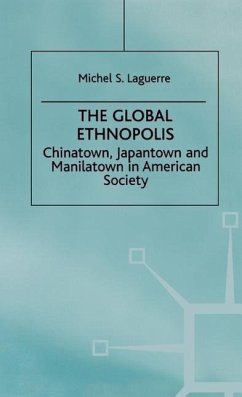This book focuses on three ethnic neighbourhoods in San Francisco - commoditized Chinatown, gentrified Japantown, and defunct Manilatown - and argues that the city is global because it comprises a multiplicity of global niches that interface with and sustain one another at the local level. According to the author, these enclaves are not simply transnational communities but, rather, global ethnopoles. They must be seen within the logic of globalization and not simply that of transnationality. The early emphasis on transnationality is misplaced because it looks at the process and not the outcome. Transnationality is the means by which, or the conduit through which, the global ethnopole is produced. The focus here is on various processes of border-crossing practices, connections, and flows in order to examine the globalized locality and the localized globality. Any theory of transnationality presupposes a theory of globalization. In other words, transnationality is the process by which globality is effected.This new approach of studying ethnic enclaves within the framework of globaliz-ation theory forces us to connect local activities and processes to a much larger universe. However, the view that diasporic communities maintain transnational rel-ations with their homelands is not new, though only recently have social scientists begun to unravel their various layers of interconnectedness. What is needed now is not simply a description of the enclave- homeland relationship but,also, an analysis and comparison of the transnational modalities of incorporation, operation, and reproduction of these ethnopoles, as well as the'`global city' status that is the hallmark of their identity.








